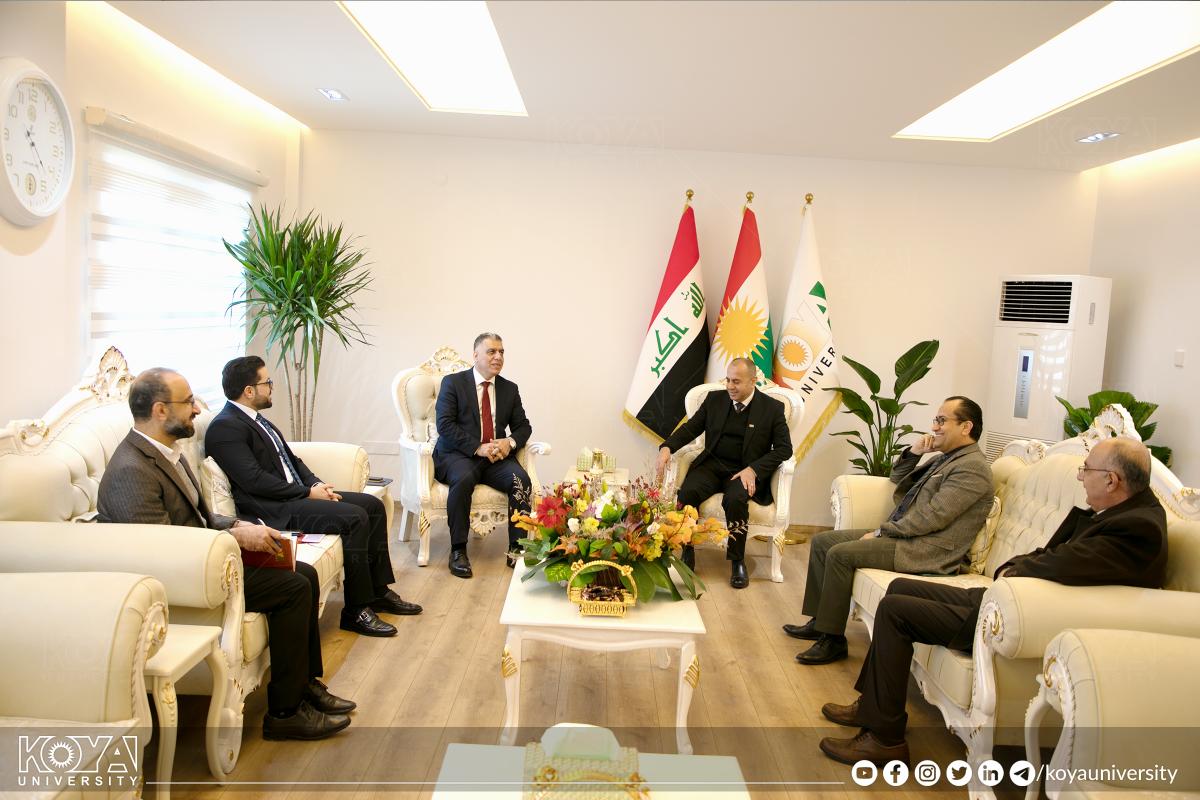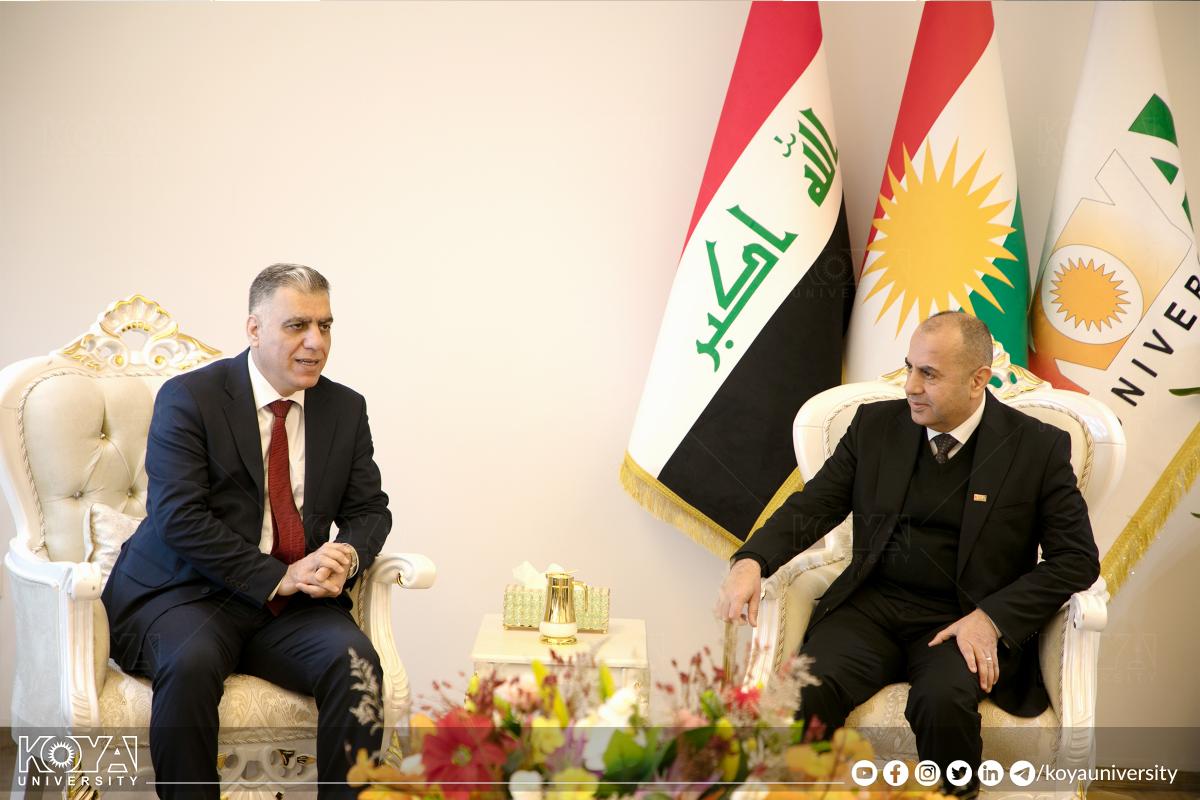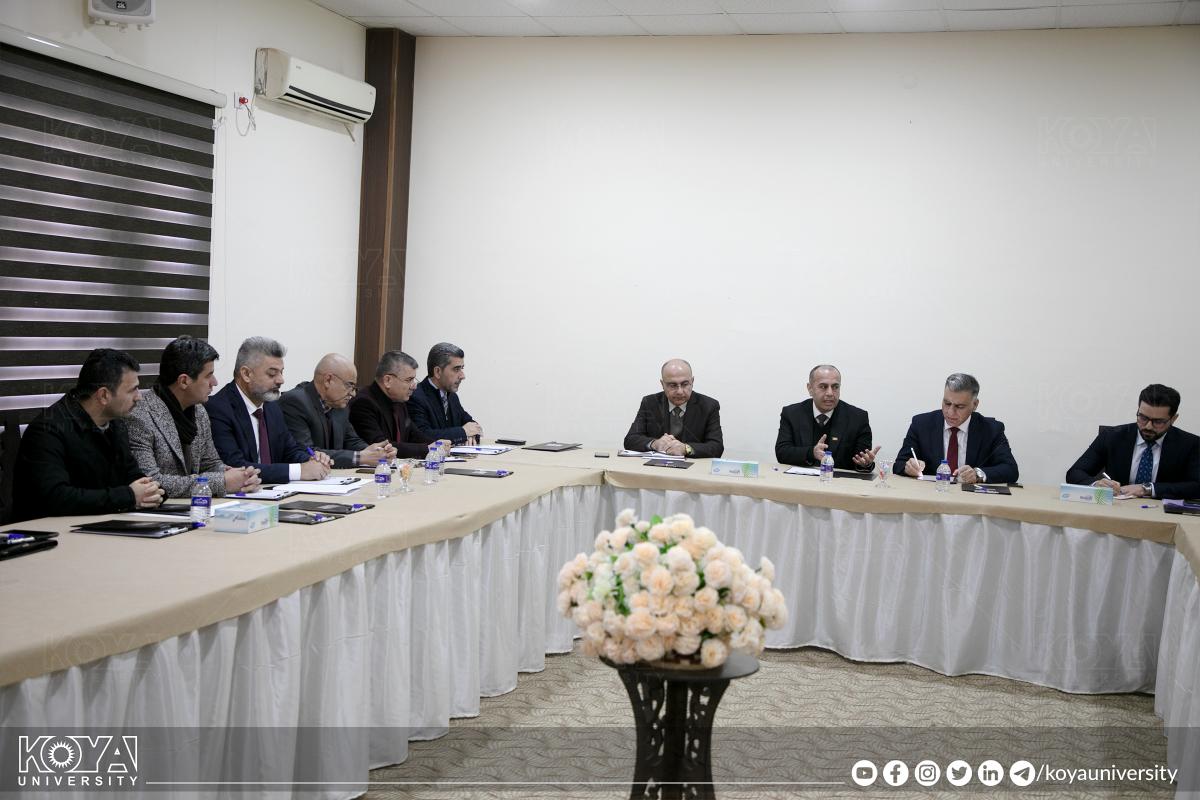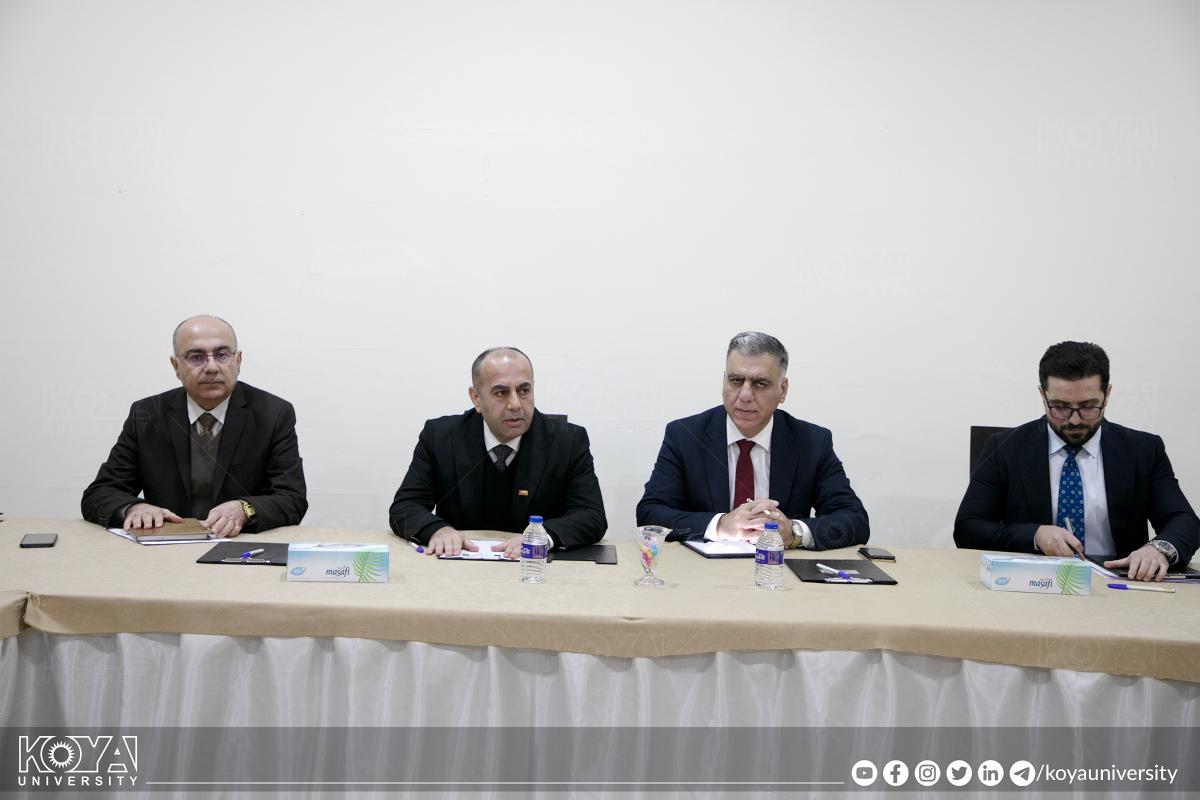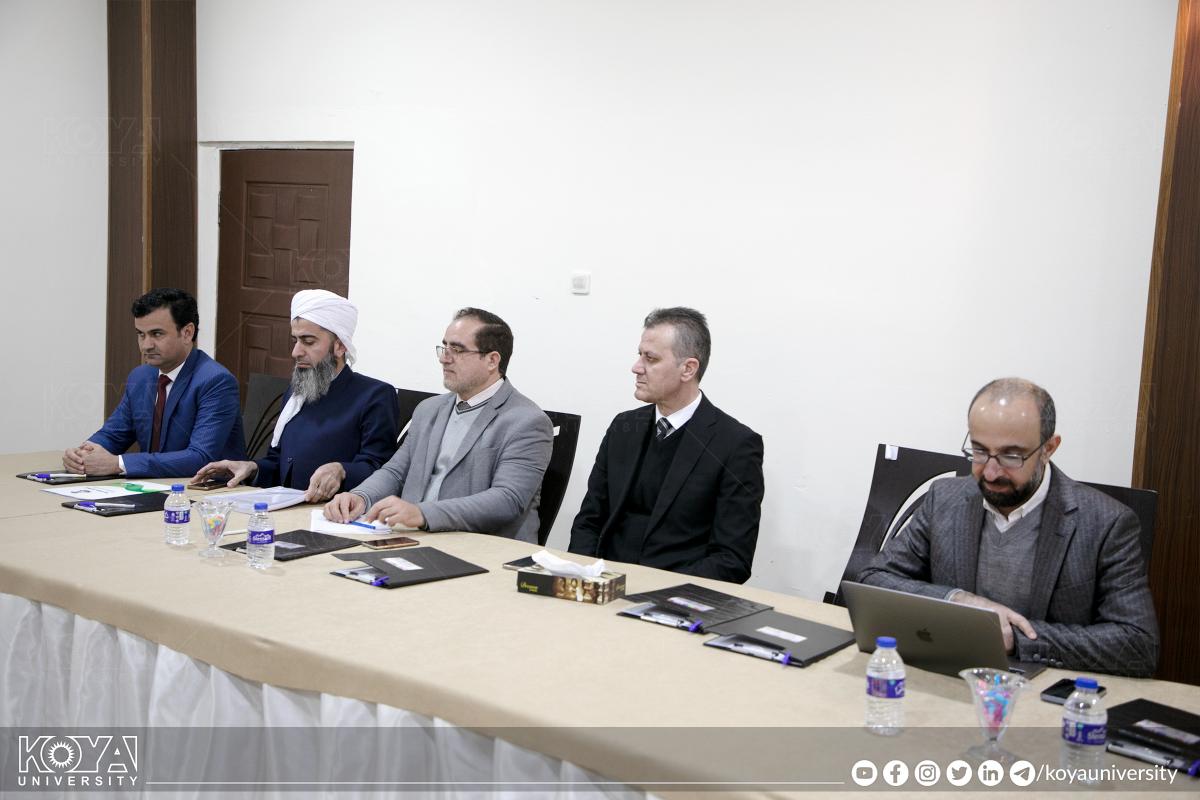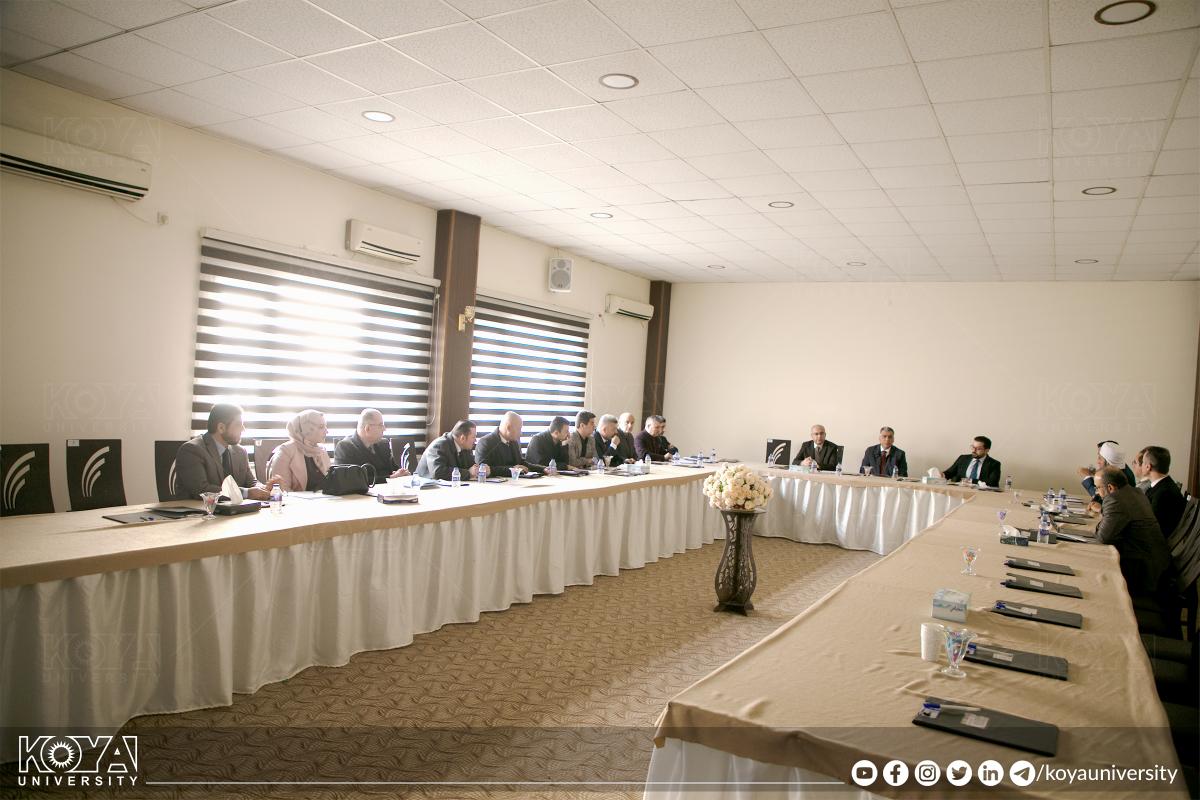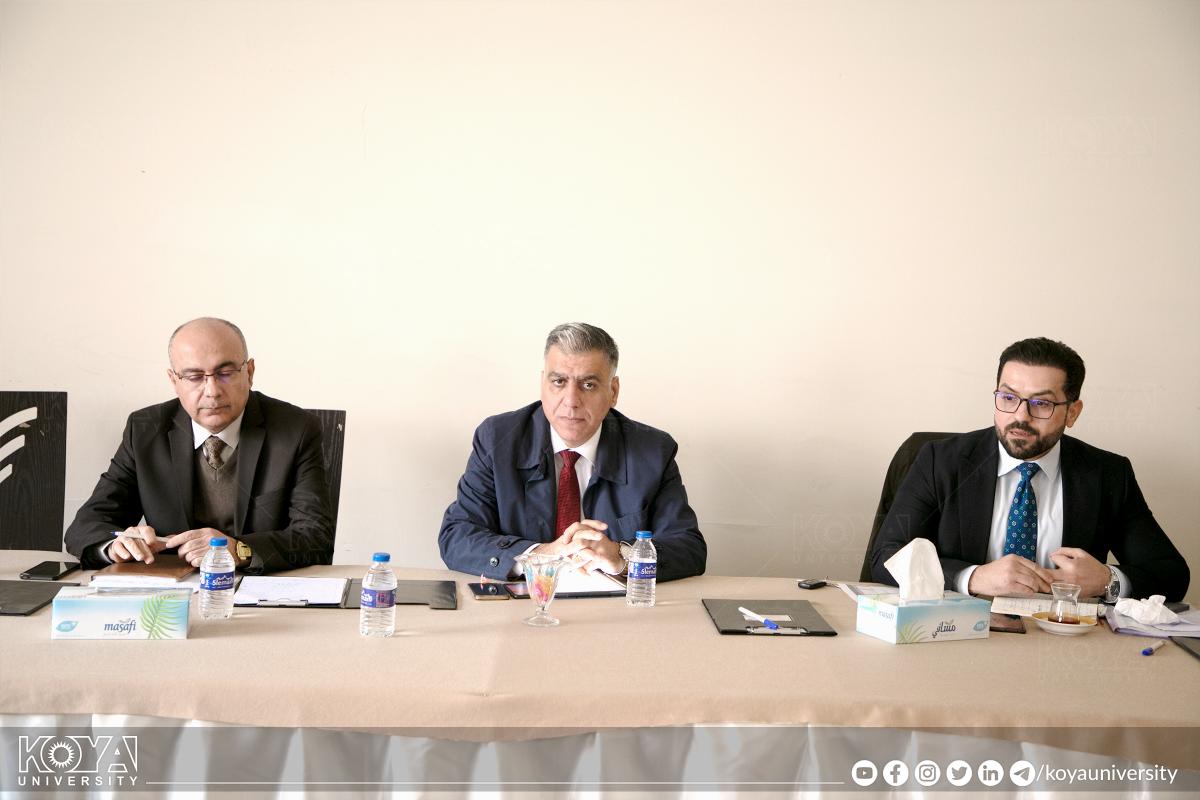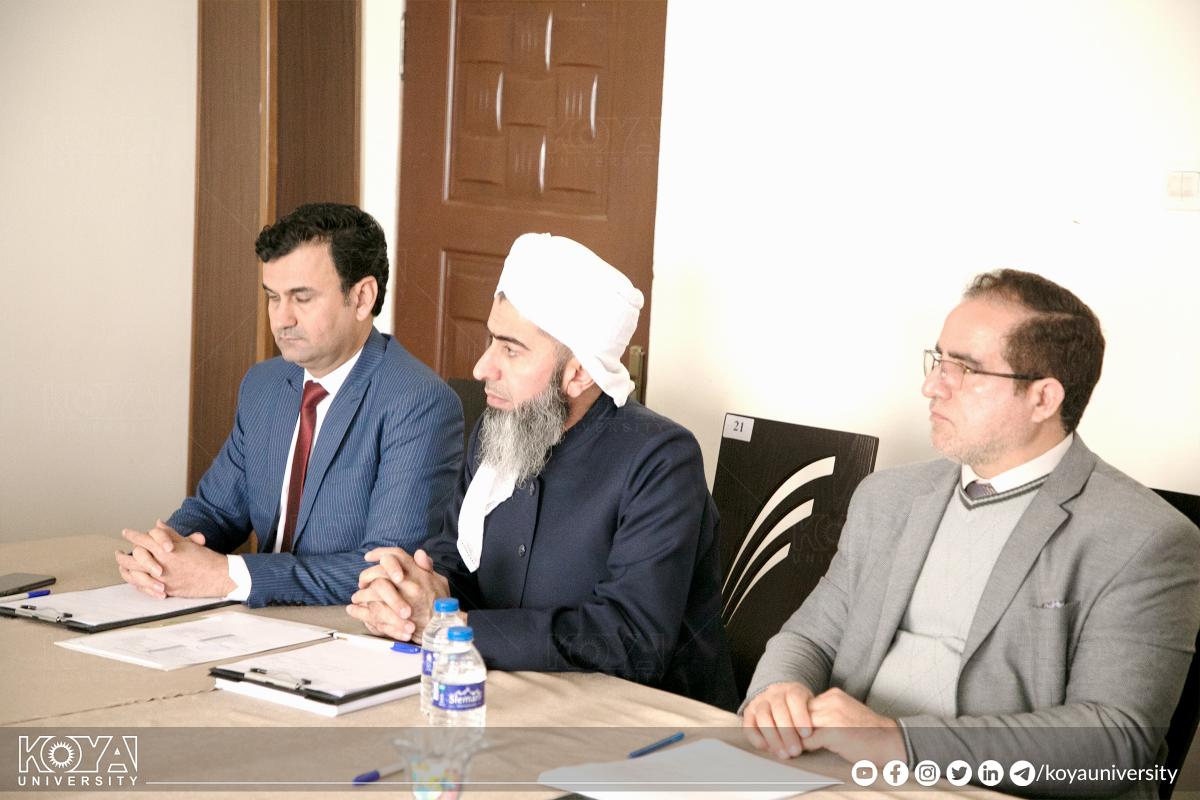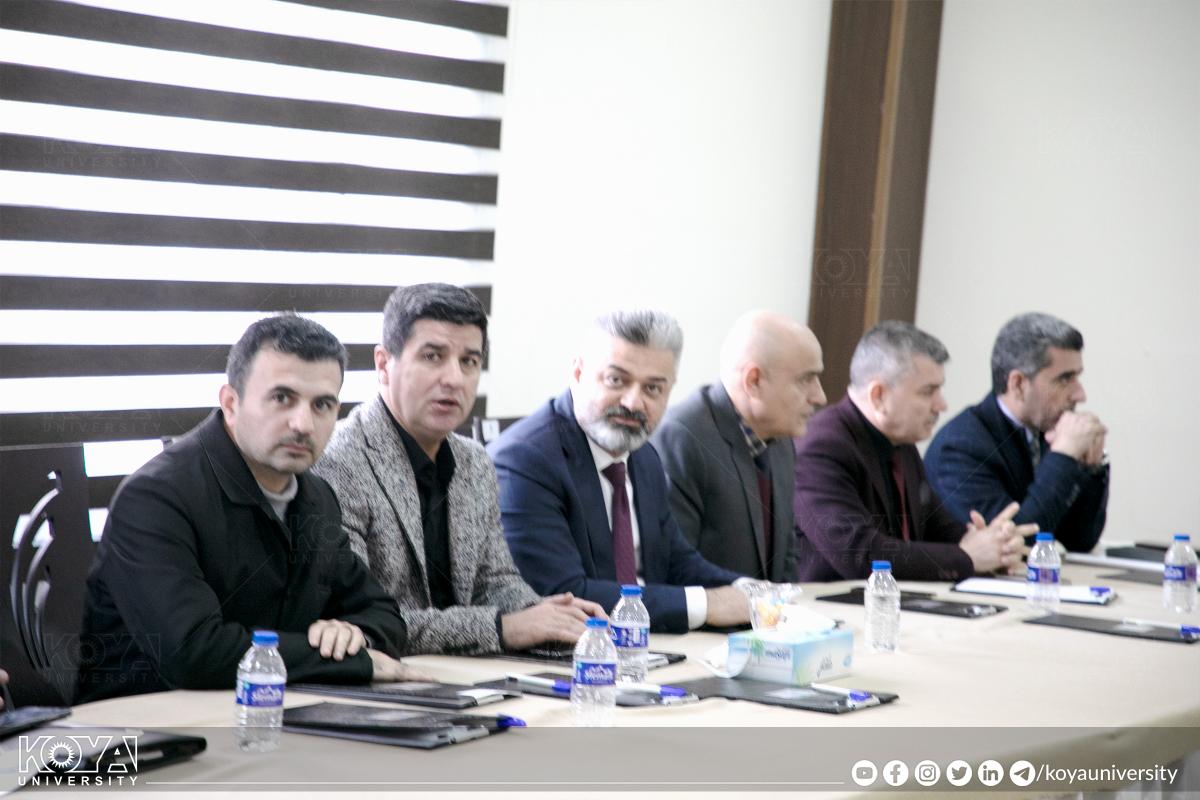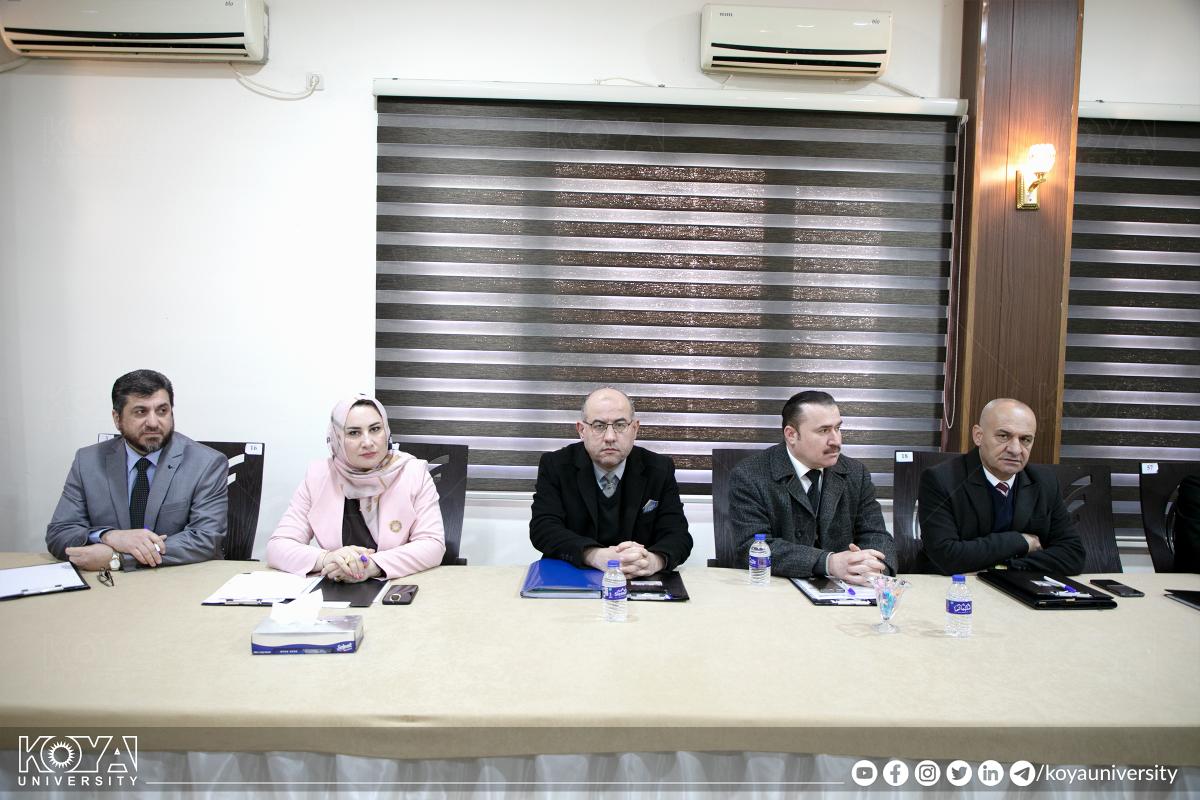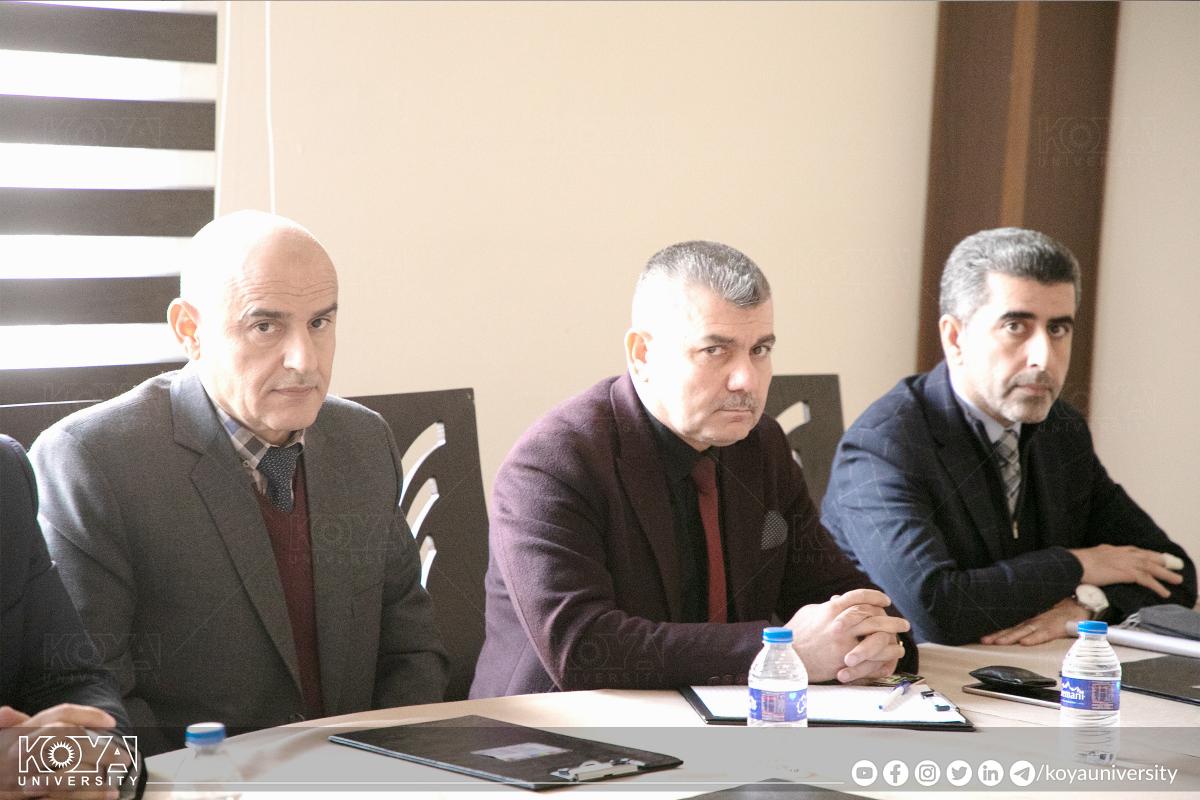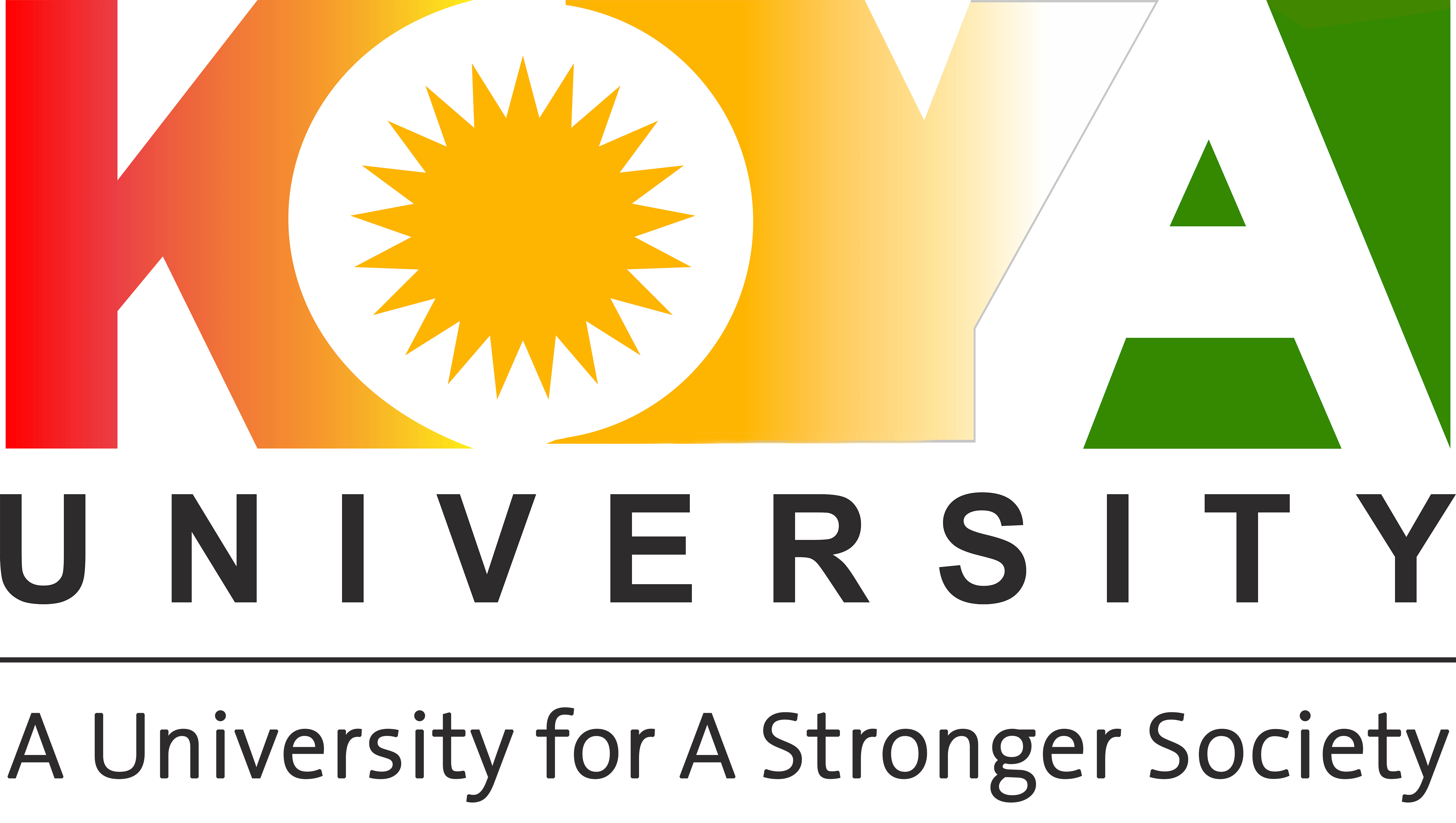A meeting on developing the curriculum for religious education and Islamic sciences was held at Koya University.
In the presence of the Koya University President, Asst. Prof. Dr. Mohammed Haseeb Siddiq, Head of the Quality Assurance and Supervision Agency of the Ministry of Higher Education and Scientific Research; Asst. Prof. Dr. Mohammed Hussein Ahmad, Dean of the Faculty of Education Prof. Dr. Safin Jalal, Director of Quality Assurance and Accreditation at the Ministry of Higher Education and Scientific Research Dr. Hawkar Rashid Arab and the deans of colleges of Islamic sciences, heads of departments of religious education, Sharia and principles of religion in Kurdistan universities, on Monday, February 13, 2023 attended in a meeting in the workshop hall of the Faculty of Engineering at Koya University.
Koya University President, Asst. Prof. Dr. Mohammed Haseeb Siddiq, welcomed everyone who attended and expressed his delight at convening the meeting at Koya University at the opening of the meeting.
The Koya University President underlined the significance of developing educational programs for all departments and faculties in his speech, emphasizing the necessity of connecting these programs to the current labor market in order to improve prospects for graduates of these departments.
The president of Koya University, Asst. Prof. Dr. Mohammed Hasib Siddiq, and Koya University were then commended by Asst. Prof. Mohammed Hussein Ahmad, Head of the Supervision and Quality Assurance Agency of the Ministry of Higher Education and Scientific Research, for holding the meeting.
In his statement, Asst. Prof. Dr. Mohammed Hussein Ahmad stressed the value of framework and reform in the educational process, particularly for the Bologna Process, and noted that this gathering is a consultative one where the primary themes of upcoming meetings will be established.
According to Prof. Dr. Safin Jalal, dean of Koya University's faculty of education, the department of religious education offers the best opportunities for employment, and the majority of students in schools not only teach religious subjects but Arabic as well.
Finally, after discussing their opinions, the participants decided to review and modify the curriculum.
